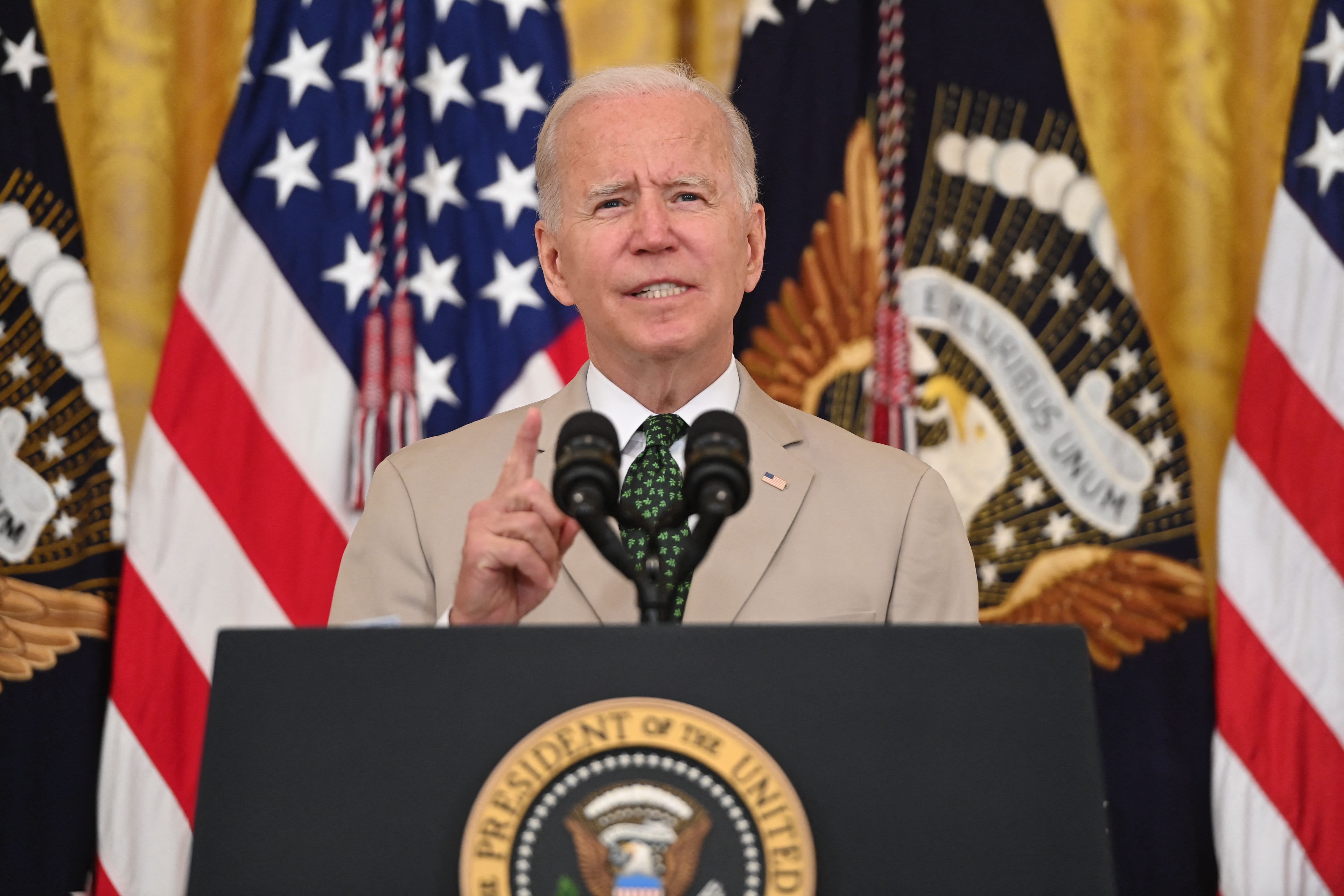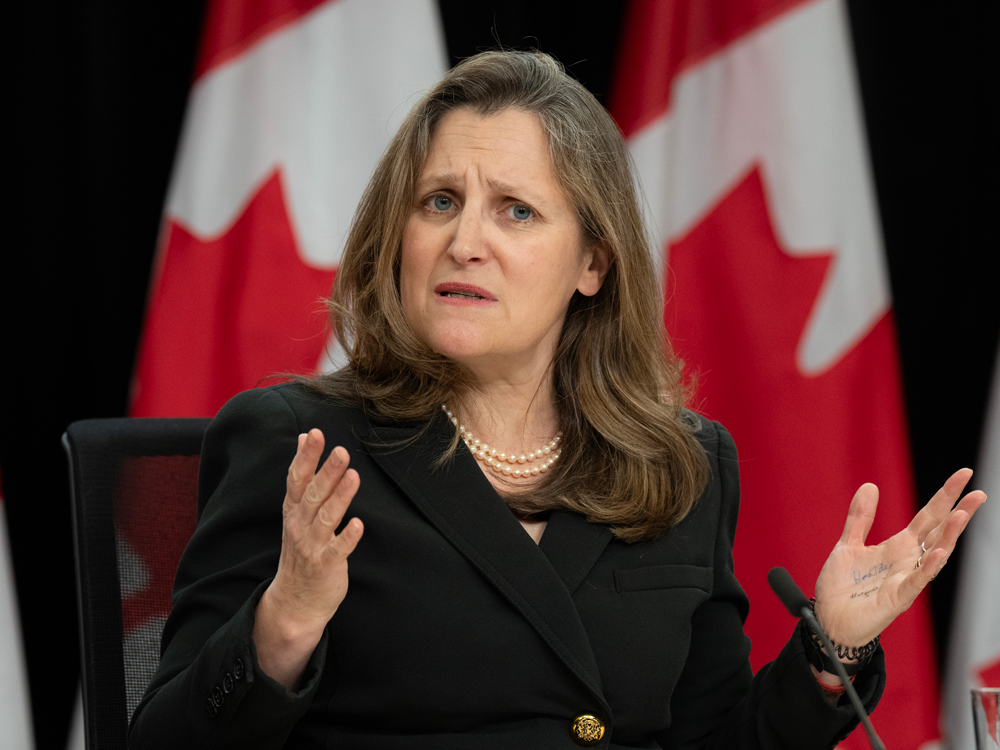Biden skips victory lap after strong July jobs report, warns of economic peril from rising Covid cases

US President Joe Biden speaks about the July jobs reports in the East Room of the White House in Washington, DC, on August 6, 2021.
Saul Loeb | AFP | Getty Images
WASHINGTON — President Joe Biden resisted the temptation to take a victory lap Friday following the release of strong July jobs numbers, instead telling the country that rising Covid cases pose an urgent threat to the economic recovery.
“My message today is not one of celebration,” Biden said in remarks at the White House. “It is one to remind us that we have a lot of hard work left to be done, both to beat the delta variant and to continue the advance of our economic recovery.”
The highly contagious delta strain of Covid currently accounts for at least 80% of new infections nationwide.
Still, hiring rose last month at its fastest pace in nearly a year, despite fears over the delta variant and as companies struggled with a tight labor supply.
Nonfarm payrolls increased by 943,000, while the unemployment rate dropped to 5.4%, according to the department’s Bureau of Labor Statistics. The payroll increase was the best since August 2020.
The number of new jobs beat economists’ expectations by nearly 100,000, and the unemployment rate fell three tenths of a percent lower than experts had predicted it would.
In touting the strength and resilience of the economic recovery, Biden did something Friday that he rarely does: Pointed to Wall Street analysts to validate his argument.
“What we’re doing is working,” he said. “Don’t take my word for it. The forecasters on Wall Street project that over the next 10 years, our economy will expand by trillions of dollars. And will create two million good paying jobs.”
Trouble ahead
But July’s strong topline numbers do not accurately reflect a troubling new development in recent weeks: the rise in Covid infections and hospitalizations attributed to the delta variant.
That’s because the actual numbers for BLS monthly jobs reports are calculated during just the second week of the month, based on that week’s data.
In the three weeks since the July jobs figures were calculated, hospital emergency rooms and intensive care units have begun filling up again in parts of the country.
This has prompted some large employers and schools to freeze plans to fully reopen offices and campuses in the coming weeks.
The White House is deeply concerned that rising Covid caseloads could stall the economic recovery, imperiling Biden’s domestic agenda and Democrats’ electoral chances in the midterm elections.
Sticks and carrots
And after months of relying on incentives, celebrity endorsements and local outreach to convince Americans to get vaccinated, the Biden administration took a tougher line this past week, adding sticks to the proverbial carrot-stick equation.
Federal employees who cannot prove they’ve been vaccinated will be placed under a host of unpleasant restrictions at work, like being physically separated from their vaccinated colleagues.
The Pentagon also announced plans to include the Covid vaccine among the mandatory vaccines administered to U.S. service members.
Biden didn’t touch on these measures in his speech Friday, choosing instead to describe various measures the administration is enacting to protect the economic recovery.
He repeatedly referred to Covid as a “pandemic of the unvaccinated,” a phrase that some critics say fails to capture the universal impact of rising caseloads and things like reinstated mask mandates.
As the White House often notes, more than 90% of Covid hospitalizations are people who have not been vaccinated against the virus. And while vaccinated people can contract and transmit Covid, they typically exhibit mild symptoms akin to a flu or a sinus infection.
The White House view
Both publicly and privately, White House aides say that the stubbornly high rate of unvaccinated Americans – 30% of eligible recipients – is creating a situation where one virus, the coronavirus, is essentially creating two different, parallel public health challenges.
On one track are the 166 million fully or partially vaccinated people, whose individual Covid infections the government has not officially tracked since May.
For them, the virus looks more like a seasonal flu from past years than it does like the debilitating, weekslong pulmonary crisis that millions of Americans experienced in 2020, before the vaccine became available.
But for the unvaccinated, many of whom are concentrated in the Southeastern United States, the delta variant virus is just as deadly, and far more contagious, than the original virus was in the early months of 2020.
Biden, however, believes there is reason for optimism. “I’m pleased to report in the past week we have seen first-time vaccinations in America go up by four million shots,” he said Friday. “That’s more than we have seen in a long time.”
— CNBC’s Jeff Cox contributed to this report.




